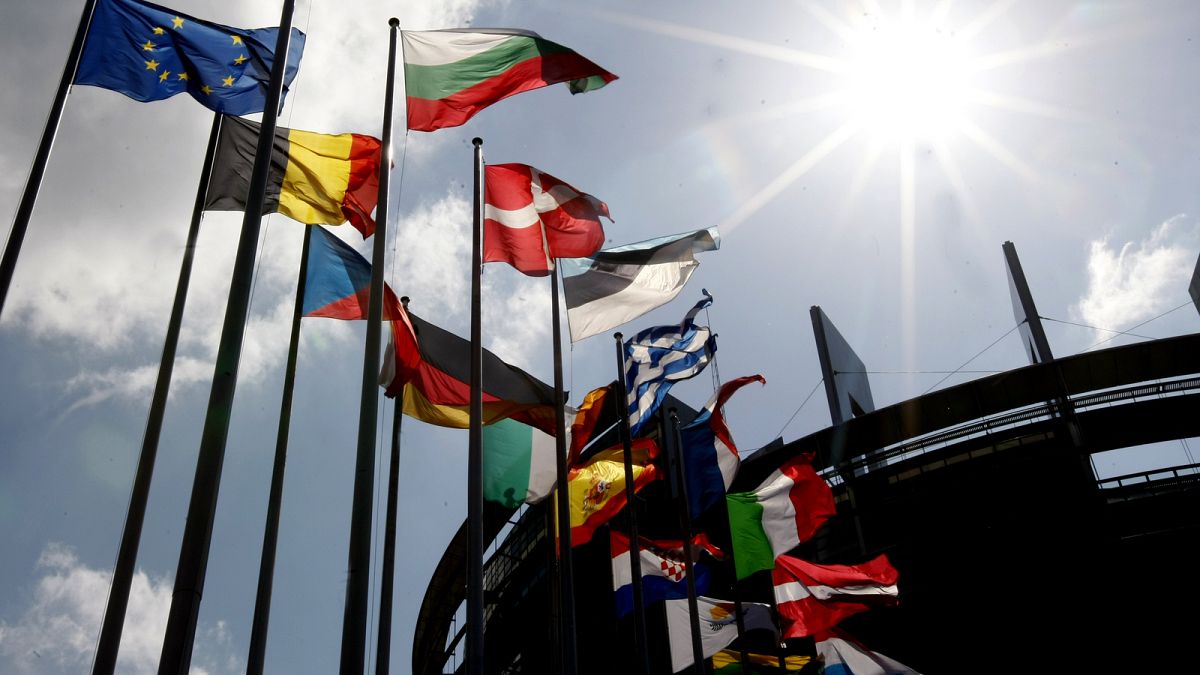As the European Union gears up for one of the largest transnational polls in history, with around 373 million eligible voters set to elect 720 new MEPs from 6 to 9 June, the focus is shifting to national battlegrounds. Despite the EU’s increasing role in addressing common challenges such as security, climate change, and migration, domestic issues are expected to shape the outcome of the election. The rise of far-right forces and stagnating support for centrist parties across the EU have set the stage for a critical juncture in European politics, with the vote being framed as a referendum on ruling parties in many member states.
In France, Marine Le Pen’s protégé Jordan Bardella is poised to crush President Macron’s liberals, with Bardella expected to scoop up around a third of the French vote. The sharp rise of the far-right National Rally has put Macron’s Renaissance party in a difficult position, facing a potential third-place finish if socialist wildcard Raphaël Glucksmann gains support. The upcoming election is seen as a pivotal moment for Macron’s political future, with the possibility of a significant setback looming.
Spain’s political debate is deeply polarized, with the centre-right People’s Party hoping to capitalize on voter discontent around an amnesty law and a corruption probe into Prime Minister Pedro Sánchez’s wife. The far-right Vox party is projected to make gains, while domestic issues such as corruption and rule of law continue to dominate the headlines. The outcome of the election in Spain could have far-reaching implications for the country’s political landscape.
Italy’s Giorgia Meloni is eyeing big gains for her Brothers of Italy party at the expense of coalition partners, with FdI topping the poll and potentially securing 23 seats. Matteo Salvini’s far-right League party is facing a potential drop in support, with Meloni emerging as a key player in Brussels. Meloni’s position as a potential kingmaker has attracted interest from European leaders such as Ursula von der Leyen and Marine Le Pen, highlighting the significance of Italy’s election for Europe as a whole.
In Germany, the ruling coalition is under pressure, with support stagnating or dipping for all parties. The Greens, in particular, are facing a tough challenge as security and migration take precedence over climate issues for voters. The far-right Alternative for Germany is expected to see some support rise, despite controversies surrounding its lead candidate. The election in Germany is being closely watched as a referendum on the country’s current political landscape.
Belgium’s European election is overshadowed by simultaneous federal and regional elections, with the far-right Vlaams Belang party predicted to make significant gains. The surge in support for Flemish nationalists could deepen divides in the country and bolster Europe’s hard-right camp. The outcome of the election in Belgium will have implications for the future of the country as well as for the European Union.
Portugal’s European election is an early test for the new minority government, with the ruling Democratic Alliance facing challenges from the opposition Socialist Party and the far-right Chega party. Support for AD and PS is neck and neck, with the far-right party making inroads and threatening the country’s two-party system. The election in Portugal will shed light on the political landscape and the potential for change in the country.
In conclusion, the European Parliament election is shaping up to be a crucial moment for Europe, with domestic issues and the rise of far-right forces changing the political landscape across the continent. As voters prepare to head to the polls, the outcome of the election in key countries such as France, Spain, Italy, Germany, Belgium, and Portugal will have far-reaching implications for the future of the European Union. Stay tuned as Euronews’ correspondents provide insights and analysis on the unfolding political developments in Europe.











